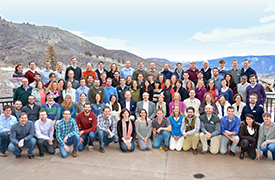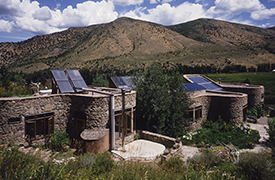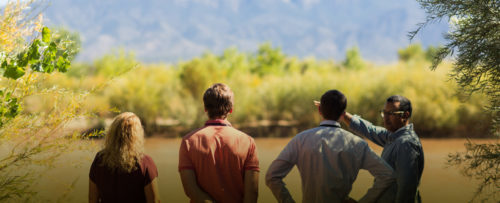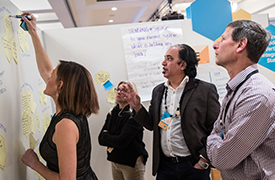As of 2024, RMI has over 700 employees around the world. Meet our amazing staff.

Get to know us
Rocky Mountain Institute (RMI) is an independent, nonpartisan nonprofit founded in 1982 that transforms global energy systems through market-driven solutions to secure a prosperous, resilient, clean energy future for all. In collaboration with businesses, policymakers, funders, communities, and other partners, RMI drives investment to scale clean energy solutions, reduce energy waste, and boost access to affordable clean energy in ways that enhance security, strengthen the economy, and improve people’s livelihoods. RMI is active in over 50 countries.
Our Mission: To transform the global energy system to secure a clean, prosperous, zero-carbon future for all.
Our values
Applied Hope. We believe systemic change is possible. We are bold and visionary in our aspirations. We are solutions-oriented, practical, and inclined to action.
Intentional Partnership. We work with others to create equitable change for all. We focus our actions on where our unique strengths are best applied. We are responsible stewards of our resources and partnerships.
Active Learning. We take time to listen, knowing that only through our collective wisdom can we be successful. We use data to inform our work and adapt based on what we learn. We invest in our learning and growth.
Inclusive Collaboration. We seek out diversity and foster inclusion. We prioritize balance and wellness for ourselves and our teams. We are transparent and treat each other with respect.
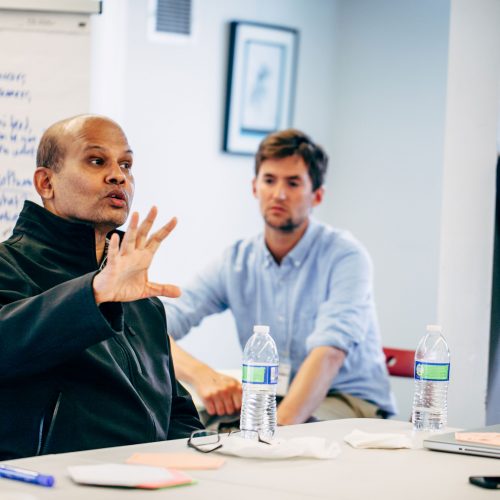
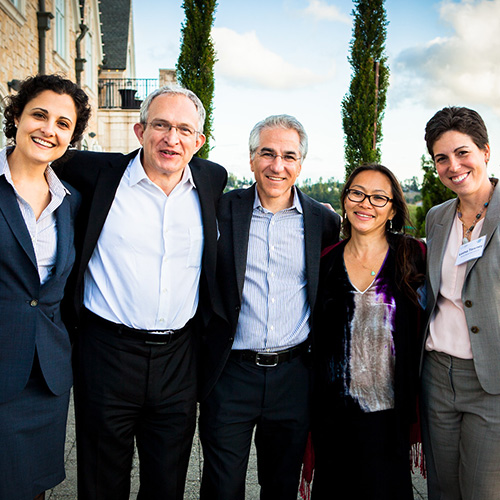
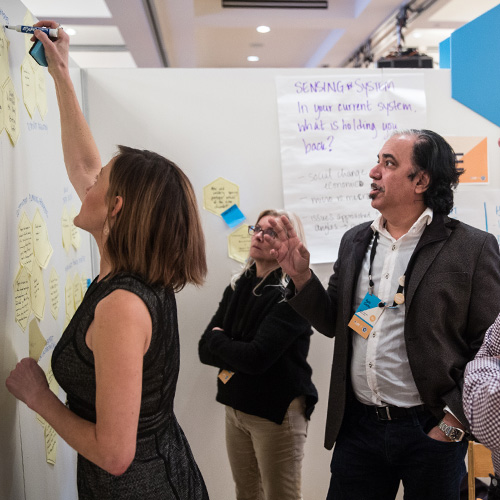
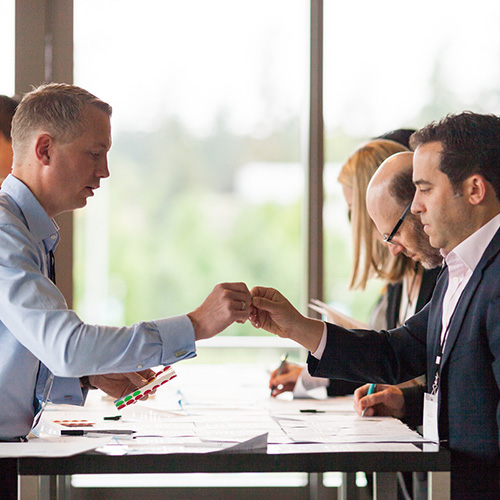
How we do it
We stand at an unprecedented time in human history. We have until 2030 to avoid the worst effects of the climate crisis, and we must do so while growing global economies and bringing modern services to those who still lack them. And while we have technologies that can replace fossil fuels and bring clean power to all, they aren’t being deployed as fast as this crisis demands.
To meet the challenge of confronting the climate crisis while improving lives, business-as-usual approaches aren’t enough. RMI’s approach is to THINK bigger, DO boldly, and SCALE globally. We apply rigorous research and analysis to unlock market-based solutions that can be replicated and implemented now. We then work with partners to activate the market catalysts—new technologies and business model innovations, finance and capital flows, big data and capacity building, all sped by effective policy — that can drive rapid, systemic change and economy-wide transformation.
Abundance by Design®. We provide services that help businesses, communities, and institutions save energy and natural resources, prevent pollution, and strengthen communities. Abundance is the opposite of scarcity. It substitutes sufficiency for privation, contentment for envy, tranquility for conflict, synergy for trade-offs. Just as waste spawns scarcity, elegant frugality fosters abundance. RMI creates abundance through advancing solutions that wring far more benefit from energy, materials, and other resources, and showing people how to do more and better with less for longer. We reveal how to meet the needs of a clean, prosperous, and secure world not by felling the last tree and catching the last fish, but by innovative design, rigorously applied and vigorously promoted.
Natural Capitalism. We apply the framework of natural capitalism to all of our work. “Natural capital” refers to the earth’s natural resources and the ecological systems that provide vital life-support services to society and all living things. These services are of immense economic value; some are literally priceless, since they have no known substitutes. Yet current business practices typically fail to take into account the value of these assets—which is rising with their scarcity. As a result, natural capital is being degraded and liquidated by the very wasteful use of resources such as energy, materials, water, fiber, and topsoil.
Sustainability Initiatives. At RMI we want our programs to have a big impact on the world. And we want to do it with a minimal environmental footprint. That’s why we try to “walk the talk” every day. Read about the sustainability initiatives that help us minimize our carbon impact. Learn More.
Keith Mesecher, Legacy Donor
RMI is the most effective organization on earth as far as I know in changing the huge impact that energy has on the world.

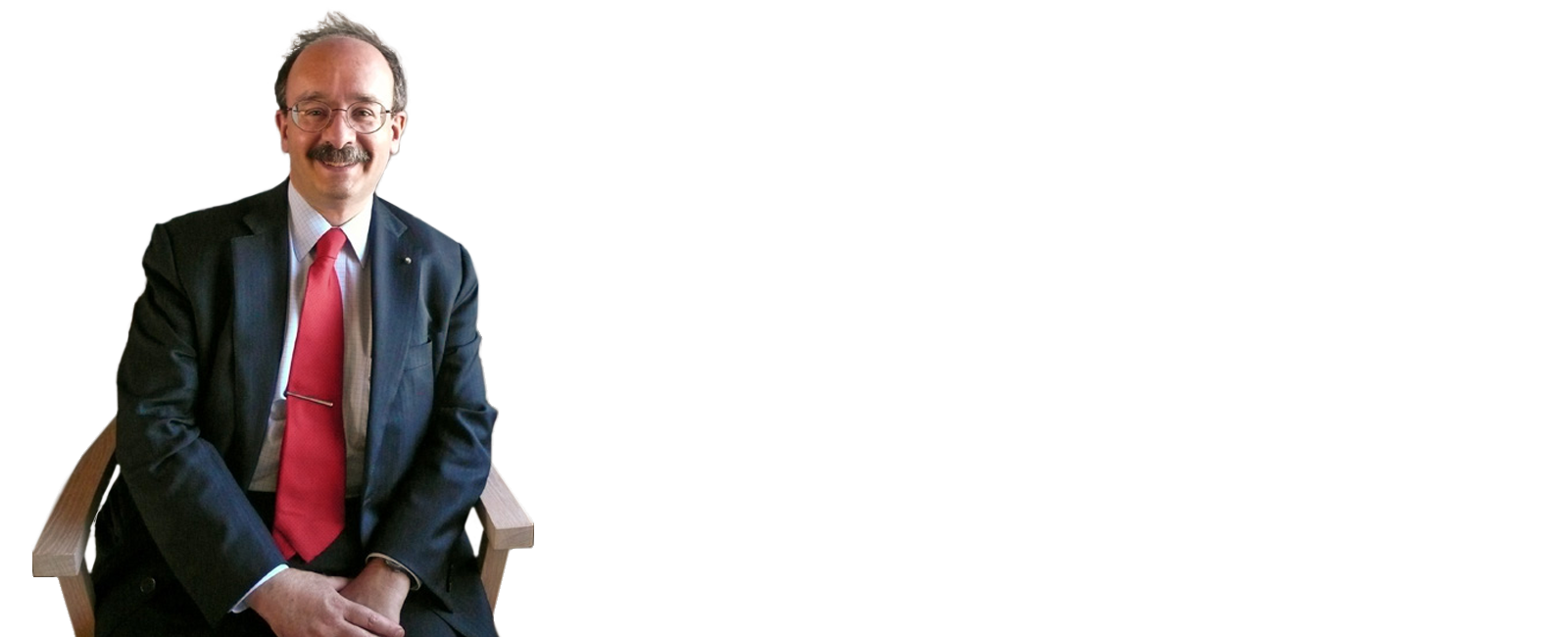
At RMI we are practitioners, not theorists. We do solutions, not problems. We do transformation, not incrementalism.
‐Amory Lovins, Founder and Chairman Emeritus
Amory Lovins cofounded RMI in 1982 to pioneer the soft energy path. Read about our beginnings and how we got to where we are today.
We have offices in Boulder and Basalt, CO; New York City; Washington, D.C.; Oakland, California; and Beijing, China.
Our online media room, the best resource for RMI's latest news and key developments.
At RMI, we are committed to creating impact from the philanthropic investments of our donors.
We at RMI believe we must have a plan to shape our future it in the direction that will do the most good, and make a difference in accelerating the low-carbon energy transition.
RMI is governed by a board of trustees that has complete oversight responsibility for the Institute.
The Solutions Council provides opportunities for members to promote RMI's work to others.
We believe finding the balance between working to live and living to work is a mutually beneficial relationship between employee and employer.
